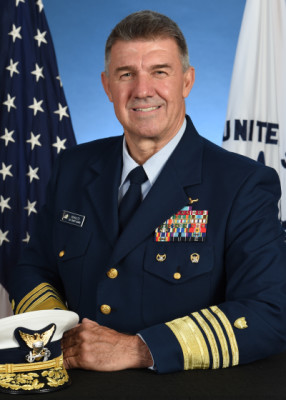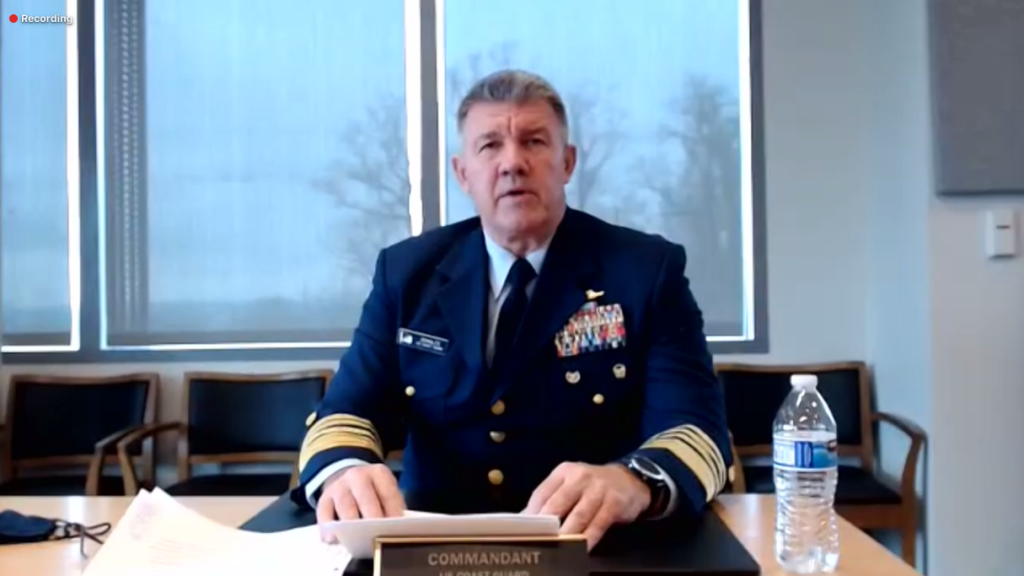The Covid-19 pandemic and the federal government's mask mandate were just a few of the items discussed by Coast Guard Commandant Adm. Karl Schultz during the opening address today at the 2021 Passenger Vessel Association Virtual Convention.
Schultz said the Coast Guard was using the Covid-19 environment as an opportunity "to get smarter about how we assess safety and employ technology" to deliver better quality service to the maritime industry.
Perhaps the biggest current pandemic-related issue for passenger vessel operators is the federal mask mandate. As of Feb. 2, passenger vessel operators must require passengers and crew to wear face masks to help contain the spread of Covid-19 and must exert "best efforts" to obtain compliance.

The mask mandate comes from a Jan. 29 order issued by the Centers for Disease Control and Prevention (CDC). It applies to all types of transportation conveyances, including commercial air carriers, trains, buses, mass transit, and vessels.
The term “vessel” includes “any passenger carrying" vessel. Thus, the CDC order applies to Subchapter H, K, and T vessels, regardless of their type of service (ferry, sightseeing, dinner cruise, overnight cruise, etc.), that operate on international, interstate, and intrastate waterways subject to the jurisdiction of the U.S.
The Coast Guard are technical advisors to the CDC, and "we have tried to convey the unique challenges maritime operations present with respect to these Covid guidelines," Schultz said. "It is not lost on any of us that the president's mandate for 100-day mask wear is pretty straightforward."
The Coast Guard has taken the position that CDC guidelines should not interfere "with the safe operation of your vessel." The Coast Guard's approach to mask wearing enforcement "will be focused on education with the CDC guidelines that say operators must use best efforts" to ensure that people wear masks when boarding, disembarking and for the duration of travel, the commandant said.
PVA members asked Schultz what tools the Coast Guard can use to help operators address passengers who don't believe the mask mandate is important. "We are not out there enforcing mask (wearing). We are out there educating, setting the standards, hoping operators and owners are getting the word out and enforcing the compliance issue," said Schultz. "How do you deal with that rogue passenger who doesn't want to wear his or her mask? That is a bit ambiguous."
Schultz said there will likely be a Marine Safety Information Bulletin (MSIB) update on the subject as the Coast Guard gets more feedback and information. "Yes, this has been hoisted on the industry at a time when it hasn't been an easy 10-11 months ... but like everything, we try to bring in a pragmatic approach. We are not going on vessels looking for mask" wearing.
"Let's try to use common sense and try and partner on this ... but it's going to be a little bit of an experiment here."




